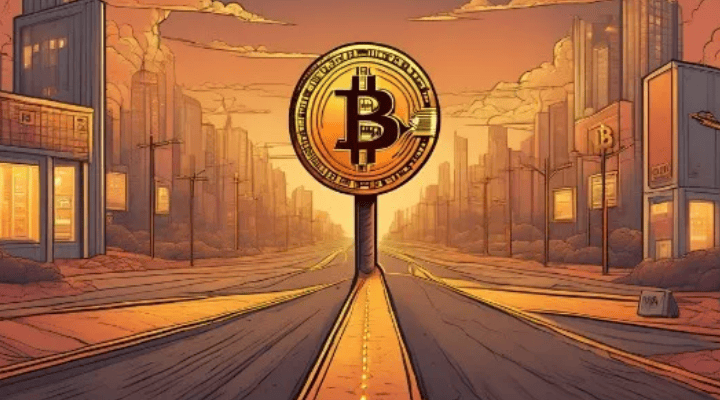Is Political adoption risking decentralization?
Bitcoin has been making headlines lately — but is all this attention a double-edged sword?
In the ever-evolving world of cryptocurrency, Bitcoin stands as the pioneer, paving the way for countless digital assets that have followed. However, a new tension is rising within the Bitcoin community, with serious implications for the future of decentralization in the crypto space.
The Growing Divide
As governments and institutions start paying more attention to Bitcoin, many enthusiasts are worried. There’s a rising concern that Bitcoin’s decentralized nature — the very thing that makes it unique — is at risk of being compromised.
At its core, Bitcoin was designed to be decentralized, free from the grip of any central authority.
But as regulatory oversight increases and big institutions dive deeper into crypto, there’s fear that Bitcoin’s original vision might start slipping away.
A major factor behind this concern? The surge of institutional involvement in the crypto market. Yes, these players bring resources and legitimacy, but it’s the retail investors — everyday people who buy, hold, and use Bitcoin — who keep decentralization alive. Without them, there’s a real risk that control could concentrate into a few hands, making Bitcoin vulnerable to the same centralization it was meant to resist.
“In the case of Bitcoin, institutional adoption brings both opportunities and risks, the latter being the potential for centralization that could undermine the cryptocurrency’s decentralized ethos.” — Cathie Wood, ARK Invest
The Vital Role of Retail Investors — The power of HODLing
Whether you’re new to crypto or a seasoned Bitcoin enthusiast, understanding the critical role that retail investors play in maintaining decentralization is key. They’re the ones who helped Bitcoin grow, fueled adoption, and fostered the sense of community that makes it more than just a digital asset.
Retail investors embody Bitcoin’s decentralized ethos.
Unlike big institutions that can move markets with massive buy-ins and sell-offs, retail investors contribute to a fairer distribution of ownership. Their continued support and use of Bitcoin prevent any single entity from gaining too much influence over the network.
History shows us what happens when too much power ends up in too few hands. Think about the early days of the internet (Web1). It started as a decentralized platform where information flowed freely.
Fast forward to Web2, and giant corporations like Google, Facebook, and Amazon gained control over large parts of the digital space. The result? We saw a rise in data privacy concerns, monopolistic practices, and stifled competition. Sound familiar?
“The internet was built as a decentralized platform, but with corporate monopolies controlling the majority of data, the original vision was quickly lost.” — Tim Berners-Lee, Inventor of the World Wide Web
Supporting Bitcoin Through a Crucial Period
So, what now? As the battle for Bitcoin’s decentralization heats up, crypto projects must stand by Bitcoin. Yes, there are plenty of new coins and tokens vying for attention, but Bitcoin remains the cornerstone of the entire crypto market. When projects align themselves with Bitcoin, they’re signaling to the broader community that decentralization still matters.
These projects can help by improving Bitcoin’s infrastructure — focusing on scalability and making decentralized engagement easier for everyday users. By working together, they can strengthen Bitcoin’s decentralized network, making it resilient against any forces that may try to centralize control.
Real-World Centralization Lessons
If you want to see where this all could go, just look at history. Take AT&T in the early 20th century. They became a telecommunications giant, monopolizing the industry and stifling competition until the government had to step in and break them up. Centralization led to fewer choices and higher prices, stalling innovation for years.
Then there’s the 2008 financial crisis. That happened because too much financial power was concentrated in a handful of institutions. When they failed, the whole system nearly came crashing down. Decentralized finance (DeFi) in the crypto world exists precisely to avoid this type of catastrophe, spreading financial power across a network rather than letting it accumulate in a few places.
“The financial crisis of 2008 showed us the dangers of centralization and how unchecked power can bring the entire economy to its knees.” — Satoshi Nakamoto, Bitcoin Whitepaper
Conclusion
The future of Bitcoin’s decentralization is at a tipping point. To keep Bitcoin decentralized, retail investors need to continue holding their BTC and supporting the network. Crypto projects must also rally around Bitcoin, ensuring that decentralization stays a core principle in this fast-changing space.
As we move forward, it’s critical to remember why Bitcoin was created and stay committed to its decentralized vision. Bitcoin adoption isn’t just a buzzword — it’s a call to action for anyone who believes in the transformative power of cryptocurrency.
Let’s stand together in our commitment to Bitcoin, decentralization, and the future of crypto. With political interest in Bitcoin heating up and debates about decentralization intensifying, the roles of retail investors and crypto projects have never been more crucial. Stay informed, stay involved, and let’s ride this exciting journey into the future.

 English
English
 Deutch
Deutch
 Espanol
Espanol
 Francais
Francais
 Portugues
Portugues
 日本
日本
 한국인
한국인
 Türk
Türk
 Русский
Русский
 Tiếng Việt
Tiếng Việt

